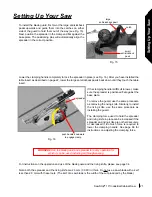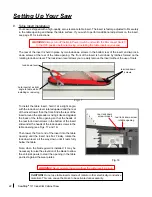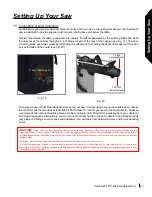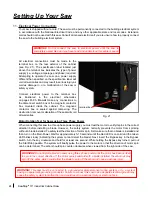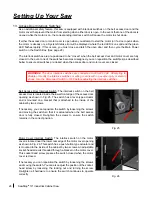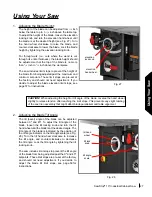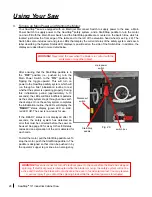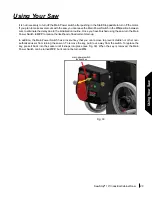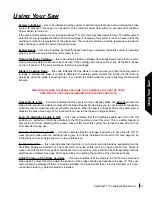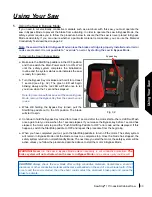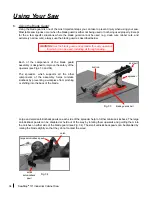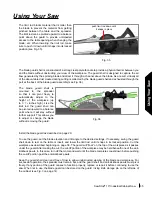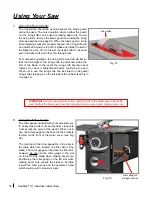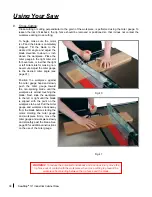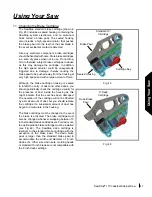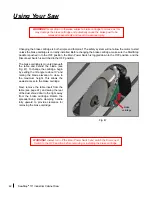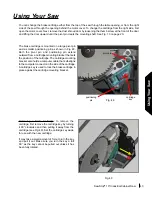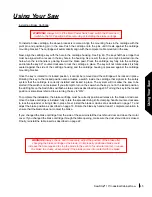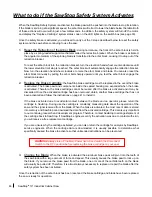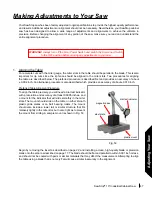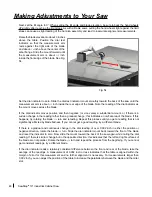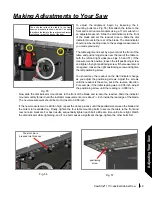
34 SawStop
®
10” Industrial Cabinet Saw
6. Using the Blade Guard:
Using the blade guard is one of the most important steps you can take to prevent injury when using your saw.
Most table saw injuries occur when the blade guard is either not being used or not being used properly. Except
for the a few specific situations where the blade guard cannot be used (e.g., dado cuts, rabbet cuts, and
extremely narrow cuts), always use the blade guard as described below.
Each of the components of the blade guard
assembly is designed to improve the safety of the
operator (see Figs. 33 and 34).
The spreader, which supports all the other
components of the assembly, helps minimize
kickback by preventing a workpiece from pinching
or shifting into the back of the blade.
Large and small anti-kickback pawls on each side of the spreader help to further minimize kickback. The large
anti-kickback pawls can be disabled or held out of the way by rotating them upwards and guiding them into
the catches on either side of the blade guard (see Fig. 34). The small anti-kickback pawls can be disabled by
raising the blade slightly so that they do not contact the wood.
WARNING!
Use the blade guard and spreader for every operation
for which it can be used, including all through-sawing.
Using Your Saw
Fig. 33
blade guard shell
limit rod
spreader
dust port
large anti-kickback pawl
catch
small
anti-kickback
pawl
Fig. 34


